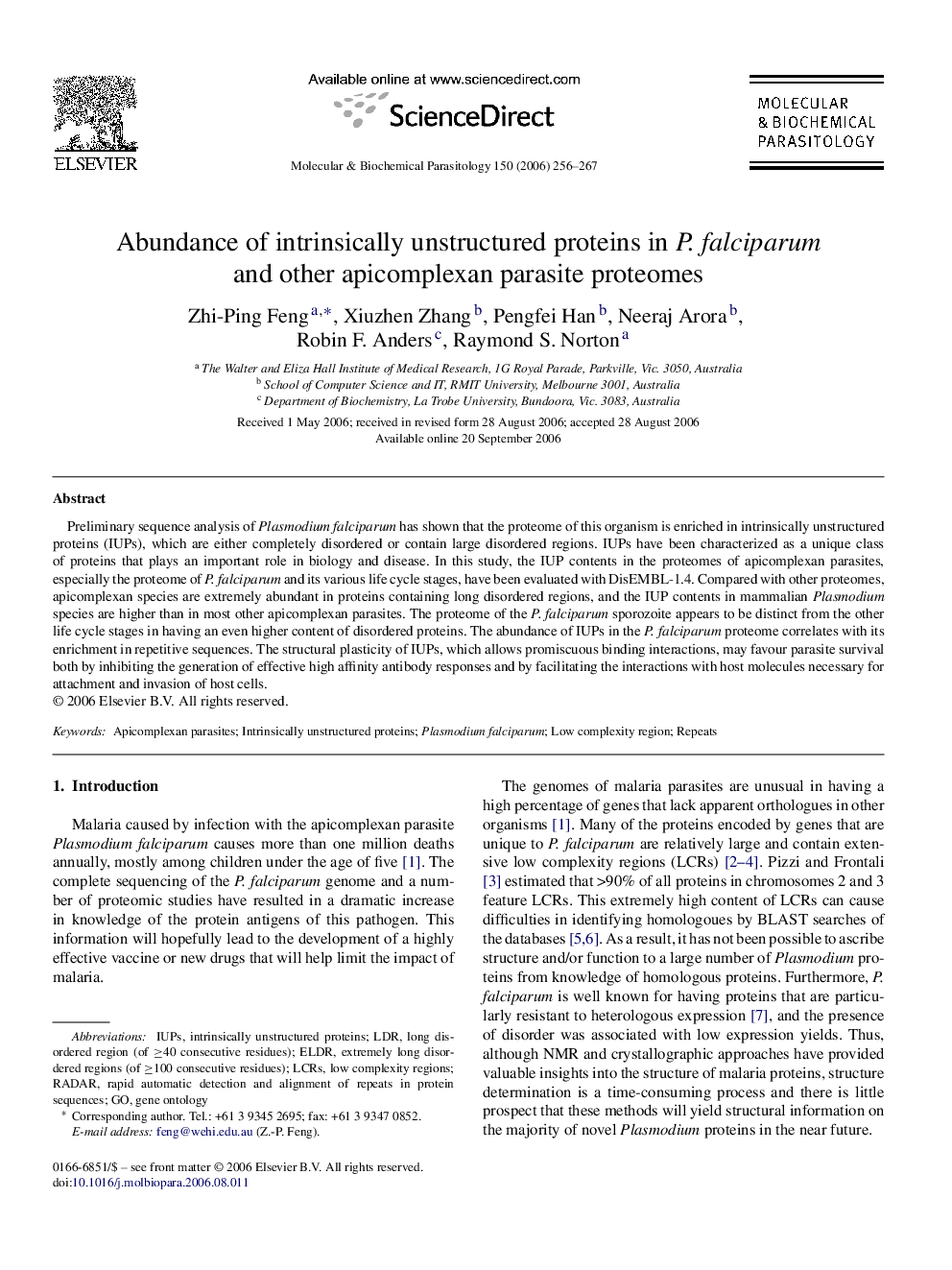| Article ID | Journal | Published Year | Pages | File Type |
|---|---|---|---|---|
| 5916152 | Molecular and Biochemical Parasitology | 2006 | 12 Pages |
Preliminary sequence analysis of Plasmodium falciparum has shown that the proteome of this organism is enriched in intrinsically unstructured proteins (IUPs), which are either completely disordered or contain large disordered regions. IUPs have been characterized as a unique class of proteins that plays an important role in biology and disease. In this study, the IUP contents in the proteomes of apicomplexan parasites, especially the proteome of P. falciparum and its various life cycle stages, have been evaluated with DisEMBL-1.4. Compared with other proteomes, apicomplexan species are extremely abundant in proteins containing long disordered regions, and the IUP contents in mammalian Plasmodium species are higher than in most other apicomplexan parasites. The proteome of the P. falciparum sporozoite appears to be distinct from the other life cycle stages in having an even higher content of disordered proteins. The abundance of IUPs in the P. falciparum proteome correlates with its enrichment in repetitive sequences. The structural plasticity of IUPs, which allows promiscuous binding interactions, may favour parasite survival both by inhibiting the generation of effective high affinity antibody responses and by facilitating the interactions with host molecules necessary for attachment and invasion of host cells.
